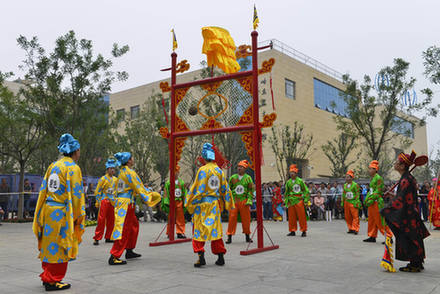Campaign against Monopoly
China's National Development and Reform Commission (NDRC) punished three cement producers in Jilin Province with fines totaling RMB 114 million for monopolistic practices in September 2014. Since early last year, China has issued six anti-monopoly fines totaling nearly RMB 3 billion.
China has recently stepped up the scale and frequency of anti-monopoly investigations. Experts estimate that antitrust actions are becoming the norm in China. Regardless of the nature of business and involved industries, investigations are conducted and penalties are imposed against all monopolistic behavior. This is not, as some critics claim, “selective enforcement”; to the contrary, firm anti-monopoly campaigns are necessary to maintain market order and a fair competition environment. Antitrust crackdowns are expected to be carried out more frequently and broadly in the future.
A Fine of RMB 3 Billion
On September 9, 2014, the NDRC said in a statement on its website that Jilin’s provincial price regulator had fined three local cement makers RMB 114.39 million for price fixing. The fine was imposed on Yatai Cement Sales Co., North Cement Co., and Jidong Cement Jilin Co., Ltd. These companies were found to have privately negotiated prices in their business operations. Yatai was fined RMB 60.04 million while North Cement and Jidong were fined RMB 40.97 million and 13.38 million respectively.
Shi Jianzhong, director and professor of the Competition Law Research Center at China University of Political Science and Law, said that the penalty should have been stricter since these three companies seriously contravened the law and, moreover, did not learn from other companies earlier punished for the same misdemeanour.
However, Bai Ming, a researcher and vice director of the Department of International Market Research under the Chinese Academy of International Trade and Economic Cooperation of the Ministry of Commerce, considers it an appropriate penalty as he believes companies should not be fined too much in the early stage of the anti-monopoly campaign.
NDRC explained the lenient penalty, saying that China sustains an excess capacity in cement production. In addition, the price-fixing agreement between the three companies did not last long and damage was limited to a regional market.
Statistics released by chinanews.com show that since the beginning of 2013, China’s antitrust probes and sanctions have involved a growing number of industries. On January 4, 2013, NDRC fined six television manufacturers including LG, Samsung, and HannStar a total of RMB 353 million. Two months later, Chinese traditional distilleries Moutai and Wuliangye were fined RMB 449 million. On August 7, 2013, six milk formula companies including Mead Johnson, Abbott and Fonterra were penalized RMB 669 million. A few days later, China’s antitrust watchdog fined five Shanghai gold retailers, including Laofengxiang and Laomiao Gold, more than RMB 10.09 million for manipulating prices of their jewelry. The Shanghai Gold & Jewellery Trade Association was also fined RMB 500,000. On August 20, 2014, a total of 12 Japanese auto parts suppliers, including Sumitomo, NTN, and JTEKT, were fined RMB 1.24 billion. On September 2, 2014, NDRC announced imposition of total fines of RMB 110 million on Zhejiang Provincial Insurance Association and 23 local insurers. Taking the penalties of the three cement companies into account, China has levied a total of RMB 2.94 billion in anti-monopoly fines since the beginning of 2013.
“Selective Law Enforcement?”
As China conducts antitrust investigations, some claim that the law enforcement departments are deliberately targeting foreign companies. Lately, the European Union Chamber of Commerce in China and the American Chamber of Commerce in China have claimed that overseas companies have been treated unequally in the nation’s anti-monopoly probe. Nevertheless, as law enforcement advances, such arguments become untenable.
It has been six years since China’s Anti-Monopoly Law came into force on August 1, 2008. Over the years, domestic companies have been punished no less severely than their foreign counterparts in frequency and penalty amounts. According to Bai Ming, the country’s antitrust probes and NDRC’s sanctions do not show a selective enforcement or specific targets. All companies in China, whether domestic or foreign-funded, are subject to investigation and punishment once they have committed monopolistic practices and violated the principle of fair competition.
Shen Danyang, spokesperson of the Ministry of Commerce, pointed out that in the six years since the Anti-Monopoly Law was implemented, probes into monopoly behavior have been conducted among both Chinese and foreign enterprises, which were treated equally before the law. Shen also rejected claims that xenophobia influenced antitrust probes.
During his talks with a group of foreign business leaders ahead of the 2014 Summer Davos Forum in September, Chinese Premier Li Keqiang said that foreign companies accounted for only 10 percent of those involved in antitrust probes. China’s antitrust crackdown does not target certain firms and does not enforce selectively, he pointed out. He hoped that foreign-funded companies in China respect business ethics and Chinese laws while conducting business operations fairly.

